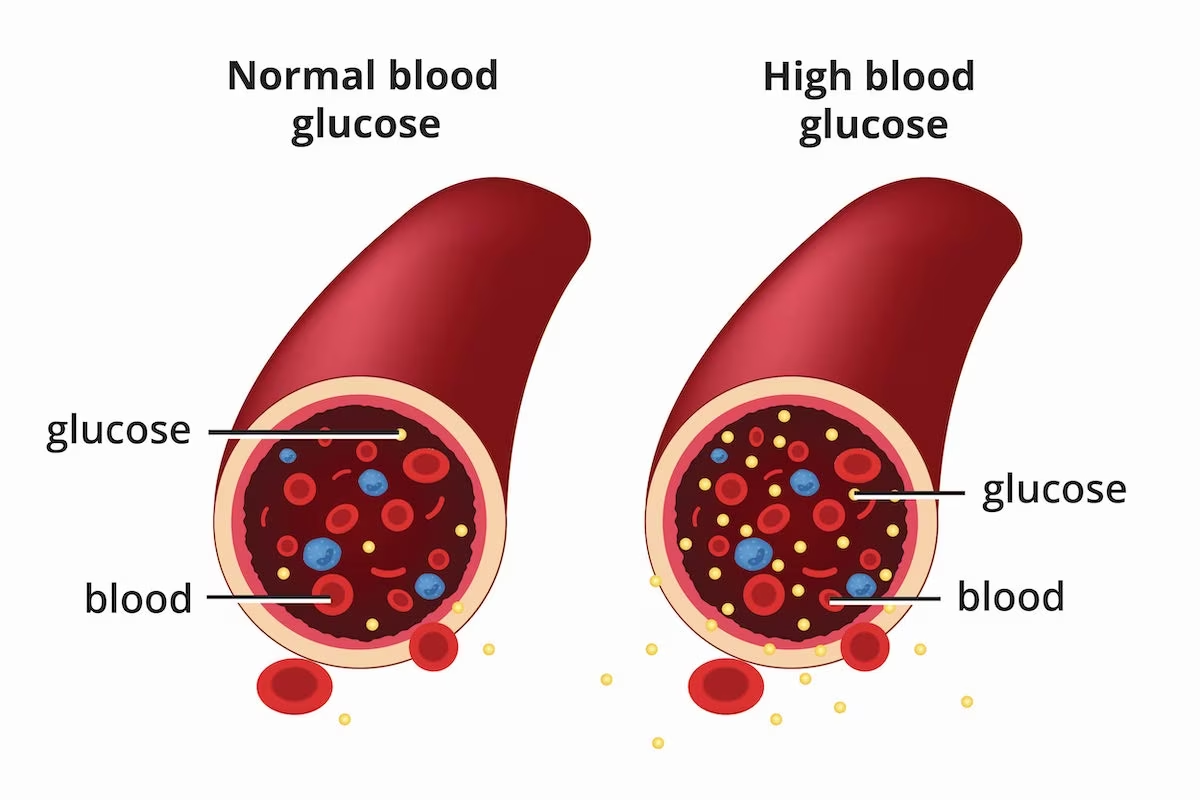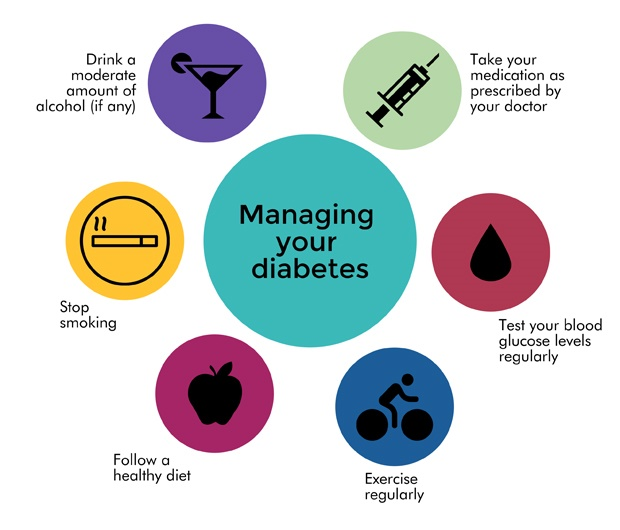Living with diabetes doesn't need to feel like an uphill struggle. You can manage your condition effectively and enjoy a fulfilling, active life with the right strategies and approaches. This comprehensive guide offers valuable insights, practical tips, and evidence-based techniques to help you thrive with diabetes. By incorporating these health strategies into your daily routine, you can reduce the impact of diabetes and live life to the fullest.

Diabetes is a prevalent chronic condition characterized by persistently elevated blood glucose levels. It occurs when the body either doesn't produce enough insulin (type 1 diabetes) or doesn't effectively utilize the insulin it produces, also known as type 2 diabetes. Insulin is a natural hormone that regulates blood sugar levels. When left unmanaged, diabetes can lead to various complications, such as heart disease, kidney problems, and nerve damage.
With proper management, including medication, a healthy diet, regular exercise, and monitoring blood sugar levels, individuals with diabetes can lead balanced lives. It's crucial to work closely with doctors and healthcare professionals to develop a personal management plan and prevent complications associated with diabetes.

Here are some essential strategies to help you manage your diabetes and reduce its impact on your life.
Eating a balanced diet is vital to managing diabetes. Aim for a diet with plenty of vegetables, fruits, proteins, healthy fats and whole grains. Your healthcare team can provide detailed recommendations about which foods are best for checking blood glucose levels.
Exercise is vital for everyone but essential for people with diabetes. Regular physical activity helps to reduce blood glucose levels and prevent heart-related complications. Aim for at least 30 minutes of exercise daily, such as walking or swimming.
If you are prescribed medication, taking it as directed is essential. It may include insulin injections or oral medications such as Metformin. Daily medication can help you control your blood glucose levels and avoid complications.
Monitoring your blood glucose levels regularly is essential for managing diabetes. Keeping track of your readings will help you identify patterns and adjust your medications if necessary.
Monitoring your blood glucose levels is essential. Regular check-ups with your doctor or healthcare provider can help detect potential issues early and adjust your management plan accordingly.
Living with diabetes can be complicated and challenging, as it requires careful and consistent management of blood sugar levels and lifestyle adjustments. However, it's important to remember that you're not alone in this journey. Reach out to diabetes support groups where you can connect with others who fully understand your experiences and provide valuable insights. Additionally, consider consulting mental health professionals who can offer guidance and support if you ever feel overwhelmed.
In addition to seeking help, incorporating stress-management techniques like meditation into your daily routine can contribute to your overall health and well-being and help you navigate the complexities of living with diabetes. Taking good care of your physical health is crucial, and resources are available to support you every step of the way.
As crucial as lifestyle changes, the proper medication regimen is critical in effectively managing diabetes. Various factors, including the type and severity of your diabetes, lifestyle, and overall health status, determine the best medication for diabetes.
It is paramount to consult with your healthcare provider or endocrinologist to determine the most effective medication for your situation. They can consider your unique circumstances, such as age, overall health, blood sugar levels, and associated complications. They will also examine your other medications to avoid potentially harmful drug interactions.
Educate yourself about the different types of diabetes medications available. These include various oral medications, insulin, and other injectable medications. Each class of medication works in a different way to control blood glucose levels. For example, Metformin, a common type of medication for type 2 diabetes, can effectively reduce the amount of glucose the liver produces. On the other hand, insulin helps regulate blood glucose levels by aiding glucose transport into cells.
As diabetes is a progressive condition, your medication needs may change over time. Therefore, it's essential to have regular reviews with your healthcare provider or medical doctor to assess the effectiveness of your current medication and make any necessary adjustments. This constant monitoring will ensure you receive the most appropriate and effective treatment for your diabetes.
If you are prescribed any diabetes medications, purchase them from a reliable online source. An insulin outlet must follow strict safety regulations and provide access to only reputable medicines.
Every medication has potential side effects. Therefore, it's essential to balance the benefits of each drug against its potential side effects. Your healthcare provider or medical doctor can help guide you through this process, ensuring your medication is practical and well-tolerated.
Diabetes is a manageable condition that doesn't have to limit your quality of life. Understanding your condition, maintaining a healthy lifestyle, following your treatment plan, and seeking support can help you thrive with diabetes. Every step towards a healthier lifestyle counts in your diabetes management journey.
Be the first to post comment!